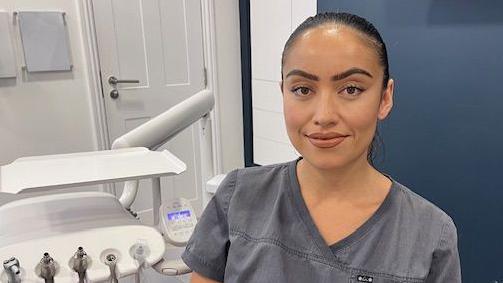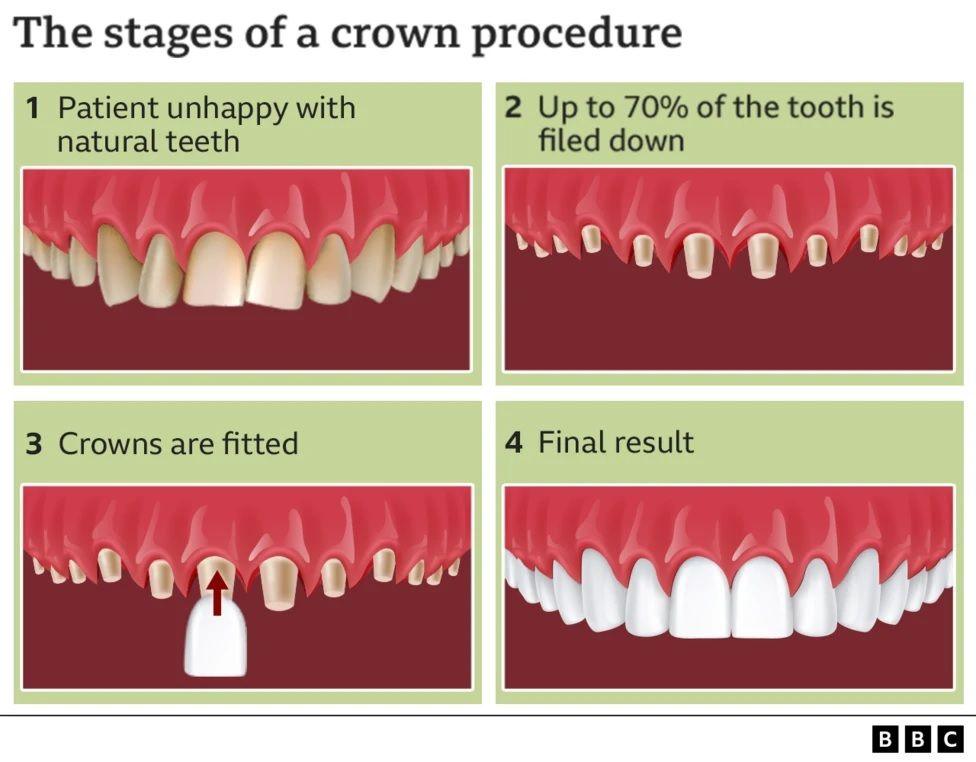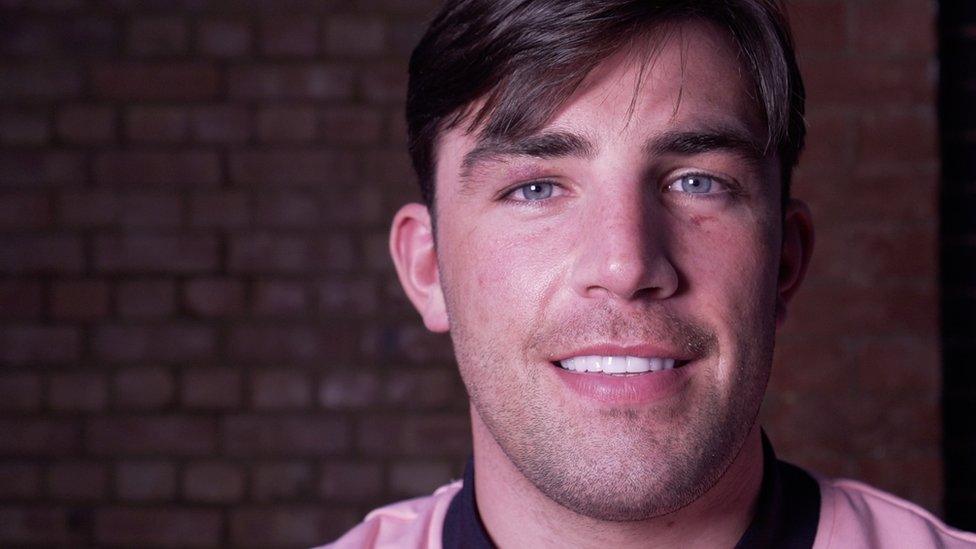Dentist facing rising tide of broken 'Turkey teeth'

Dentist Kath Stahl has blamed glossy marketing on social media for the rise in dental tourism
- Published
A dentist has warned of a rise in people needing treatment for painful and broken 'Turkey teeth' over the past year.
Dr Kath Stahl, who practises in East Yorkshire, said people chasing the "Hollywood smile" were being "blindsided" by glossy marketing on social media and the comparatively low cost of procedures abroad.
And she warned that young people with healthy teeth were going abroad for "inappropriate" treatments, including dental crowns, because "they just want that look".
The rise in the number of patients she has seen comes despite the NHS and professional dental bodies raising concerns, external about the risks of cheap overseas treatment over the past few years.
Dr Stahl's concerns come after a plastic surgeon said it was now "commonplace" to see "cosmetic tourists" requiring emergency treatment on the NHS for botched procedures abroad.
Matt Smith, a Lincoln-based consultant, said he was seeing one or two patients a month who had suffered problems including infections, sepsis and protruding breast implants.
Dr Stahl, of the Highgate Dental Practice in Beverley, said some patients did not realise that their dental problems were linked to procedures carried out overseas.
One woman, who had multiple crowns and bridges fitted in Turkey, came into the surgery complaining of "blood clots" in the mouth.
She had "no idea" that the dental work was of such "poor quality" that it was "stabbing her in the gums".
'Social influence'
Dr Stahl said she feared young people in particular were being influenced by social media and reality TV.
"They will probably have a row of perfectly healthy teeth," she said. "They're going over for treatment that for them is so inappropriate, because it will be a full mouth of dental crowns."
Fitting crowns involves permanently taking away 60-70% of the natural tooth substance.
Dr Stahl stressed that there was no such thing as "risk-free" dental treatment.
In some cases the procedure would be successful and "look really good", but in others "things are breaking, the gums are starting to get sore, they're getting pain, infections".
Patients who had saved up just enough for a procedure abroad then might not be able to afford remedial treatment in the UK.

Fixing work done by a dentist abroad could be "tricky", Dr Stahl said.
"You don't know what they actually did, you don't know what's underneath, any of the materials they've used."
In addition, some dentists fear that if they attempt to fix work carried out abroad, they might be held legally liable for it.
The NHS has warned people thinking of going abroad to beware a hard sell, external and pressure to make a quick decision, and to ensure that there are discussions around possible complications and aftercare.
And Dr Stahl advised anyone considering cosmetic work to see a dentist in the UK first.
If the patient then decided to go abroad, they should conduct thorough research, book a clinician who "really cares" about their overall health, and consider what aftercare they might need.
"If you've found something that seems too good to be true, that's really cheap for what you want, then it probably is too good to be true," she said.
Listen to highlights from Hull and East Yorkshire on BBC Sounds, watch the latest episode of Look North or tell us about a story you think we should be covering here, external.
Related topics
Related internet links
- Published14 July 2022

- Published26 September 2024

